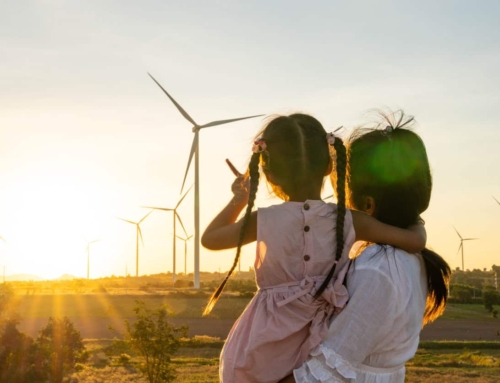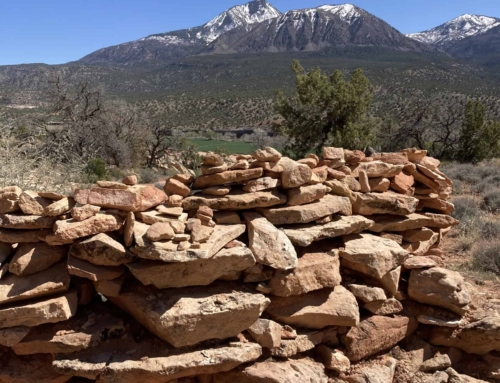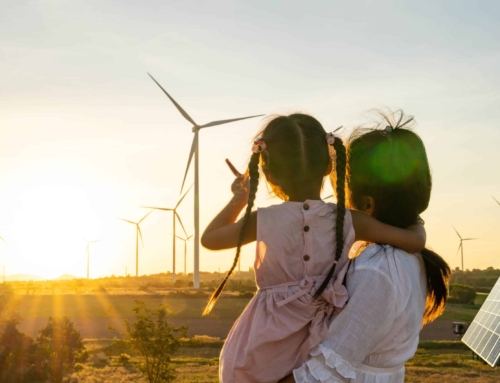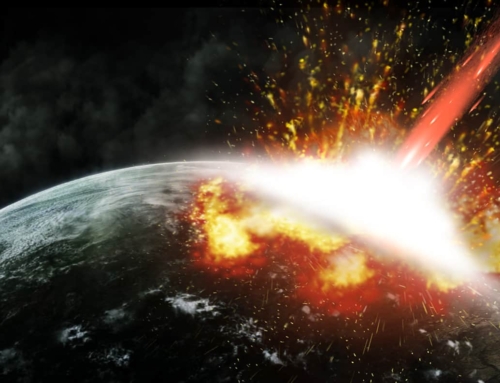I have a number of friends and family members who know I work for climate justice and to save the Earth from climate change. Externally, there is plenty to be afraid of from these changes. The climate crisis is happening now and not in some distant future. So why don’t many of these friends and family share my concerns about the environment?
Well, first off, they do. They share the concerns. But many don’t act on them. I suspect they are inhibited from acting by fear.
It seems to me there are two sources of fear. Fear created by an external source. For example, fear of how an unstable environment will affect our children. Then there is fear based on internal or personal concerns.
With the first source, using fear in climate messaging doesn’t work. I’ve written about this in Environmental Messaging: The Balance of Fear, Hope and Action. Fear is the great immobilizer in messaging. We are wired for ‘flight,’ ‘fight’ or ‘faint.’ Fear captures attention, but causes most of us to flee or freeze.
When we fail to act on an external fear, it alienates us from ourselves. It becomes a personal or internal fear. This last effect is different than a specific climate fear, and I am interested in the subtle way it prevents us from acting.
There are three big questions worth asking about the climate crisis we are facing.
- Do we need to change?
- Can we change?
- Do we have the will to change?
The answers to the first two are straightforward. Yes, we need to change. You have to be willfully ignorant, or deceived, not to see what’s going on. Yes, we can change. We have the science and technology to at least make an honest effort. The costs are estimated to be between a half and one percent of GDP. This is doable. We can afford the solutions. It won’t be easy, and it could be the biggest thing mankind has ever attempted. It will also require everyone.
We also have a huge battle to fight the well funded disinformation and doubt campaigns of the conservative right and the fossil fuel industries. They have 1,700 registered lobbyists in DC alone, not counting state governments. They spend at least $2.3 billion per year to get $37 billion in subsidies. A great return. (Check out the film and the book, Merchants of Doubt) They are conning and deceiving the American people. Now, the question remains, do we have the will to change?
As attributed to Edmund Burke, though he never actually uttered the most famous quote attributed to him is; “The only thing necessary for the triumph of evil is for good men to do nothing.” And that is what we have. Too many legislators without balls willing to stand up to fossil fuel lobbyists and unwilling to say, we must act on climate change. It is dangerous to all of us. As good men and women, we have rationalized our lack of involvement or focus because of personal fear. This extends to each and every one of us.
Fear rules a lot of what we do in our lives. As a society, we’ve become much more afraid. 49% of Republicans are actually afraid of Democrats and 55% of Democrats are afraid of Republicans. We cling to our group identities. Our leaders divide us with terrifying ease. Watch out for Muslims and Sharia law. Mexican’s are disease ridden rapists. The press is lying. No wonder we are developing a bunker mentality.
These statements are not true. They engender real external fear for political purposes. But standing up to these lies creates another type of fear. Again, this type of fear is personal fear, not the kind caused by fear of melting ice caps.
When faced with a challenge, our thoughts automatically go to… What will my group of people think if I speak out? Will they still like me? Will I still “belong?” What if I make a mistake?
From my experience, there are three things that I will say to those of us that have personal fear of acting on climate change. The first is you are already part of an identity group that believes and respects action on the climate. So why worry what they think? Your friends will actually respect you more. The second is, “We never have regrets over things we’ve done, only things we haven’t done.” The chance not taken will kill our souls faster than anything. Every time we fail to act on a personal fear we diminish ourselves. The third requires us to ask, “What’s the worst thing that can happen?” Often when we examine our fears in daylight, they lose their power.
We need to overcome personal fear in order to act. Each person’s personal fear is different. But asking what it is and examining it will help us take a step to act. It requires a little courage.
Apathy is the product of personal fear and inaction. The longer you sit with a fear, the more it festers. Wait to ask someone out on date because you fear rejection and pretty soon apathy takes over, and you find reasons not to call. Apathy is insidious and works out its own list of 1,000 excuses. Is it really that important? What can I do? What will I have to give up?
In order to cure ourselves of apathy we need to face our personal fears. What kind of actions are required on the environment? We will not save the earth by recycling or composting. It has to be a collective and a political action. If each of us did one small specific thing, together, we can change the world.
What’s the one thing we have to do? There are some personal steps to look at your own carbon footprint. But the issue of climate change is a collective issue. If you call your state and federal representatives and senators, just once a week, and let them know you want them to vote for renewable energy and for the environment, we can change the world. For example, call your US Senators and tell them you think that leaving EV tax credits and wind incentives in the GOP tax bill is a good thing. It will take four minutes out of your month.
Don’t be afraid, what’s the worst that can happen? On the other hand, it is immensely satisfying. Do it now before action turns to apathy. Here are their phone numbers.
We Are All Connected. Savor the Earth!
Hobie,
L. Hobart Stocking
SkyWaterEarth.com
hobart@skywaterearth.com
651-357-0110
Facebook: @SkyWaterEarthConnected
Twitter: @SkyWaterEarth








Leave A Comment